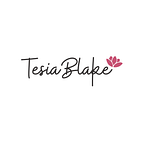I Refuse to Blame My Mother for How My Life Turns Out
I’m learning to appreciate what she got right, and forgive what she got wrong.
In the last story I wrote about my mother, the opening line was: “I love my mother, but she’s a difficult person.”
It was only after I had published it that I realized I should have reversed the order.
My mother is a difficult person, but I lover her.
That’s better. Sounds closer to the truth.
My mother did a number on me, but whose mother didn’t? We all have some degree of parental-inflicted issues, and part of growing up is identifying what those are so that we can put them in their proper place.
My mother has been through a lot of dark stuff. She’s been rejected as a child, cheated and taken advantage of as a young adult.
She has had to deal with clinical depression, panic attacks, and anorexia. When I was about 11 years old, I remember she lost over 40 pounds. She would barely eat a thing until her hip bones and collarbones started sticking out. It took time and a lot of effort, but fortunately she overcame all of that.
Everything she’s been through, however, caused her to form strong defense mechanisms, mostly based on the premise that the best defense is a good offense.
She sees the bad side of people first, and pushes them away before they have a chance to hurt her.
She finds issues with everyone, and puts her guard up before they have a chance to disappoint her.
She sees the many ways in which something can go wrong before it even has a chance to go right.
My mother has been through a huge transformation in these past five years. It came to a point where I had trouble recognizing her. She became a happy, upbeat, positive person, and I felt like I was meeting her — the woman she really is — for the first time in my life.
That was a confusing time for me, to say the least. I was happy she was finally rid of the depression that had plagued her for so long, but angry I didn’t get to experience the “good” version of my mother when I needed her the most: as a child and a teenager who still looked up to her for guidance and support — which she wasn’t always able to give.
I wish so many things had been different when I was growing up, but being able to identify so many of the issues that have influenced me as a child is a blessing: it means I can take my life into my own hands and reshape what I don’t like about it.
Have you ever met someone who’s well into her 50’s and still blames their parents for how their life turned out? I have. It’s not pretty.
They hold on to mistakes made in the past, they hold on to trauma, they hold on to hurt.
I’ve decided that’s not going to be me, so I’m making peace with my issues and taking charge of my life.
I wish I hadn’t picked up so much of my mother’s negativity growing up, but now that I’m an adult, it’s up to me to teach myself how to be more positive, and how to see the good side of people first.
I wish she had allowed me to be more independent instead of overprotecting me, but now that I’m an adult, it’s up to me to conquer that independence, to teach myself what it means and what it looks like.
I wish she had allowed me to think more for myself instead of feeling pressured to say amen to everything she says. Now, it’s up to me to validate my own beliefs, and establish a healthy, adult dialogue with my mother. I want to have the kind of open dialog that enriches both of our lives, the kind of conversation in which we both have our space without interfering so much in one another’s lives.
So far, it seems like it’s working.
There’s a lot about my mother that I’m thankful for.
I’m thankful she believes in the healing power of therapy, and that my parents found me good therapists when I needed it the most.
I’m thankful she’s been so open with me about her own issues and childhood traumas. It has helped me understand her a lot better — and it has made it a lot easier to forgive her mistakes.
I’m thankful she taught me that even our darkest demons can be conquered. It might be painful, it might take time, but healing is possoble.
I’m thankful she’s taught me that creativity is a muscle, and has given me plenty of incentives to exercise mine.
And lastly, I’m thankful for all the love she shared with me.
I don’t believe there is such a thing as a perfect parent, or an infallible parent. I believe that seeing our parent as adults who are also trying to figure out how to live a healthy, productive life is what defines our own entry into adulthood.
As children, we’re all heavily influenced by our parents, for good or evil. Growing up means we get to pick and choose what we want to keep, and get rid of what isn’t useful in order to continue evolving in this journey we call life.
I’m working on owning my life, so I’m working on being the curator of what I allow to influence me. Whatever my life turns out to be, it will be the result of what I choose to cultivate, so I’m choosing carefully.
I’m making an effort to let go of the bad and keep the good, so that when I’m well into my 50’s I can say I built a life that’s all mine. Whatever doesn’t go right won’t my mother’s fault, but my own.
